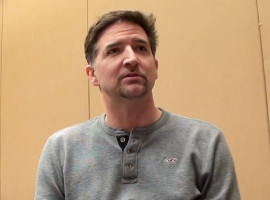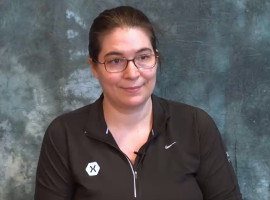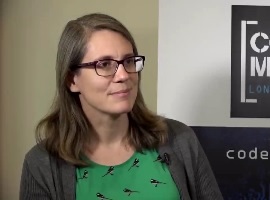InfoQ Homepage Programming Content on InfoQ
-
Adam Tornhill on Code as a Crime Scene, Git and Static Analysis, Clojure
Adam Tornhill explains how to treat code as a crime scene, analysing Git repositories to discover team behaviours and code smells, the pros and cons of Clojure, and much more.

-
Mark Burgess on Computer Immunology and Configuration Management
Mark Burgess discusses his paper "Computer Immunology", the origins of CFEngine and other configuration management tools, and the need for them for IoT .

-
Yao Yue on Making Twitter's Pelikan Cache Fast And Reliable
Yao Yue explains the motivation for building Twitter's Pelikan cache, how Pelikan differs from other caches, what to do and what to avoid when building reliably low latency software, and much more.

-
Interview with Simon Ritter on Java 9
Alex Blewitt talks to Simon Ritter at QCon London 2016 about Java 9, the impact that Jigsaw will have on developers, and Java on the Raspberry Pi along with the differences between the Azul JVMs and Open JDK.

-
Jason McGee of IBM Talks about Open Source Projects and the Interactions at the Collaboration Summit
Jason McGee of IBM talks to Rags Srinivas of InfoQ about the importance of different open source initiatives, like Container Native Cloud Foundation (CNCF), Open Container Initiative (OCI) and how to sort through them from a developer perspective.

-
Rachel Reese on The Good and Bad of Microservices (with F#)
Rachel Reese on the challenges and benefits of using microservices at Jet. In particular how F# made it easier to refactor and maintain hundreds of microservices. The hard bit is the infrastructure.

-
Peter Alvaro on Distributed Programming, CRDTs, LDFI
Peter Alvaro discusses some of the reasons that distributed programming is hard, Lineage-driven Fault Injection, static analysis to check deterministic behaviour, CRDTs, and much more.

-
Interview with Gil Tene on Hardware Transactional Memory
Gil Tene speaks to Alex Blewitt at QCon London 2016 on the upcoming support for hardware transactional memory in server-class Intel chips, and what it will mean for the JVM. Tene discusses what kinds of applications will benefit from speculative lock elision and increasing concurrency in the near future on multi-core server platforms.

-
John Sheehan on Web API Quality
In this interview, John Sheehan expounds on what constitutes a high quality API. The first half focuses on developer experience which will help API consumers distinguish between top tier API providers and the rest. The second half provides pointers for API providers aiming to improve various aspects of API quality, specifically performance across the API lifecycle.

-
Josh Long on Spring Boot, Spring Cloud and Microservices
Josh Long talks about the philosophy behind Spring Boot and Spring Cloud. He also discusses some of the common distributed computing problems Pivotal are trying to solve - externalised configuration, service discovery, client-side load balancing, distributed tracing and so on, and talks about some major clients including Netflix, Baidu and Alibaba.

-
Gil Tene on Understanding Latency
Gil Tene explains latency and how it relates to service and response times, measuring latency, common misconceptions about latency, what to do when a system's latency can't meet SLAs, and much more.

-
Stephanie Weirich on Dependent Typing, Extending Haskell, Type System Research
Stephanie Weirich gives an introduction to the ideas behind dependent typing, dependent typing in Haskell, extending Haskell, and the status and future of type theory.
